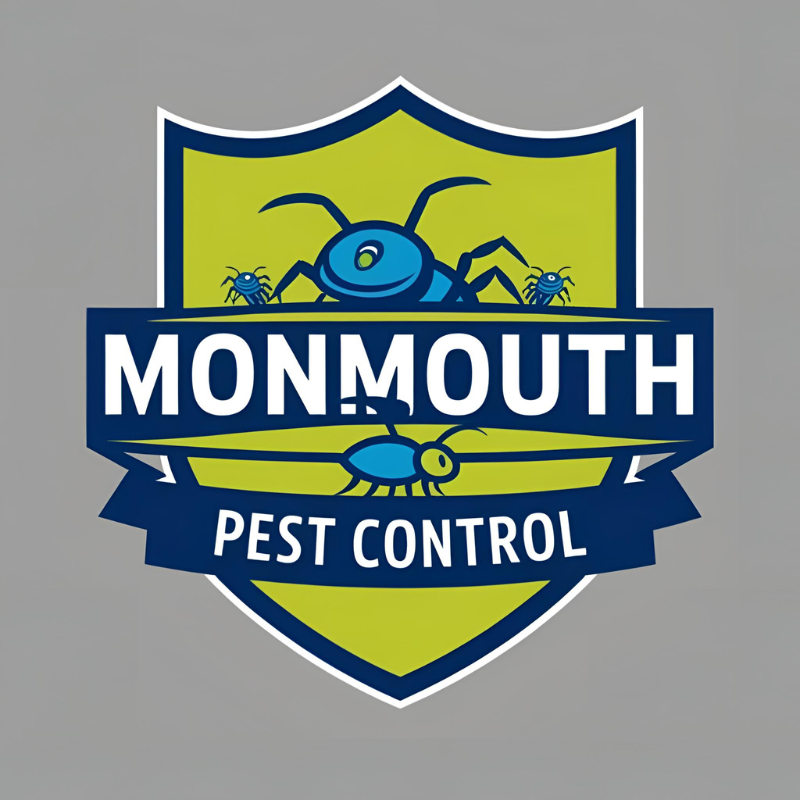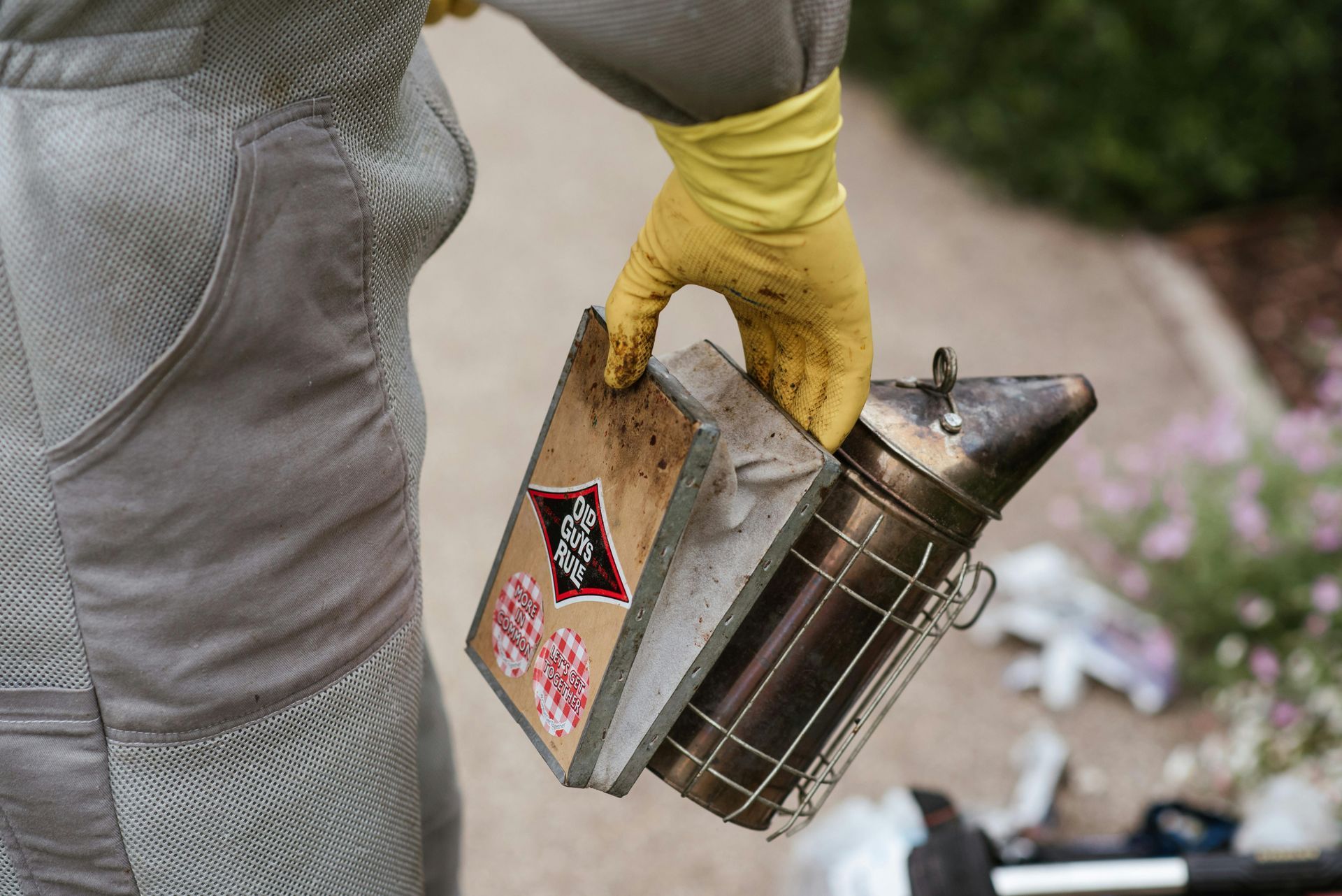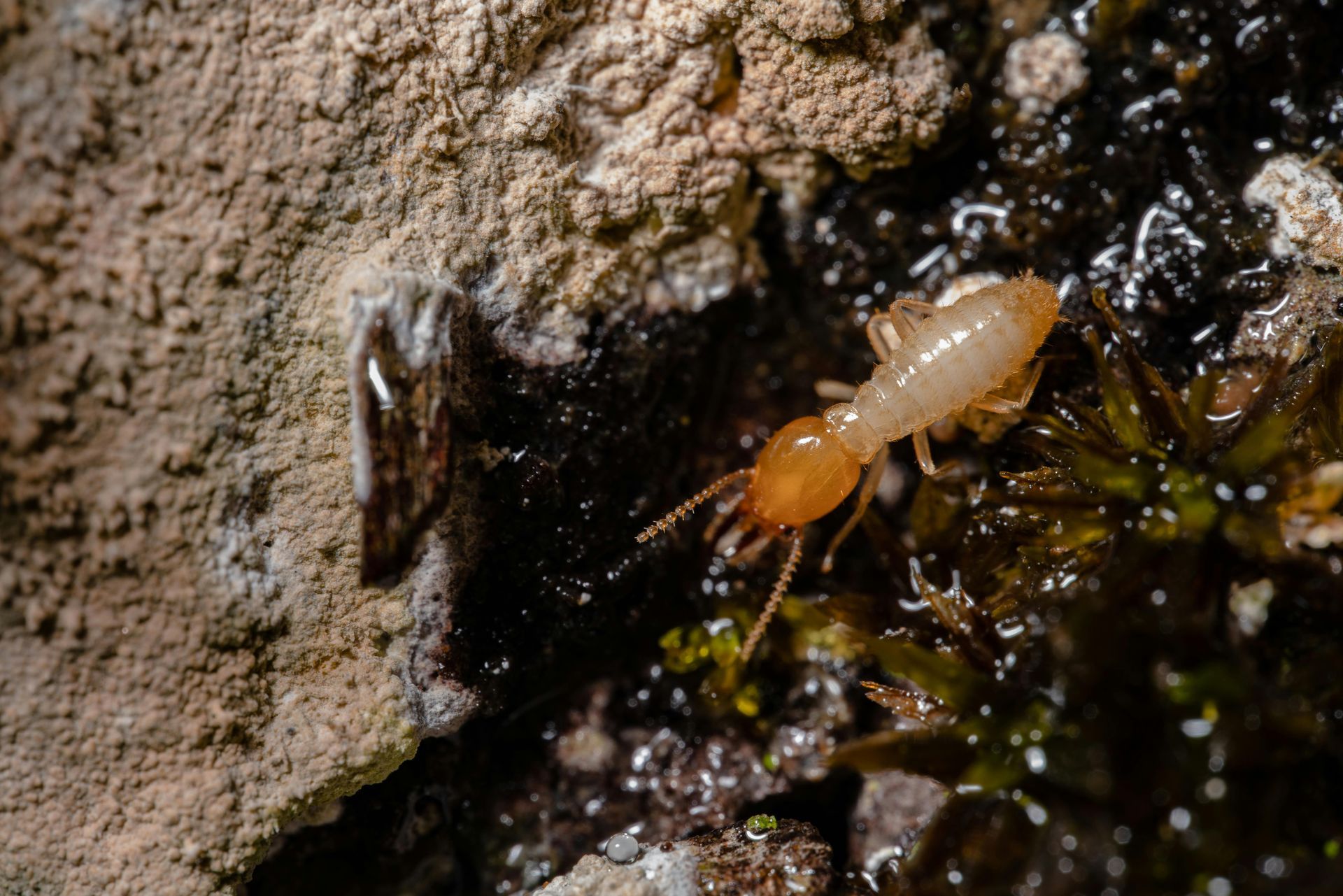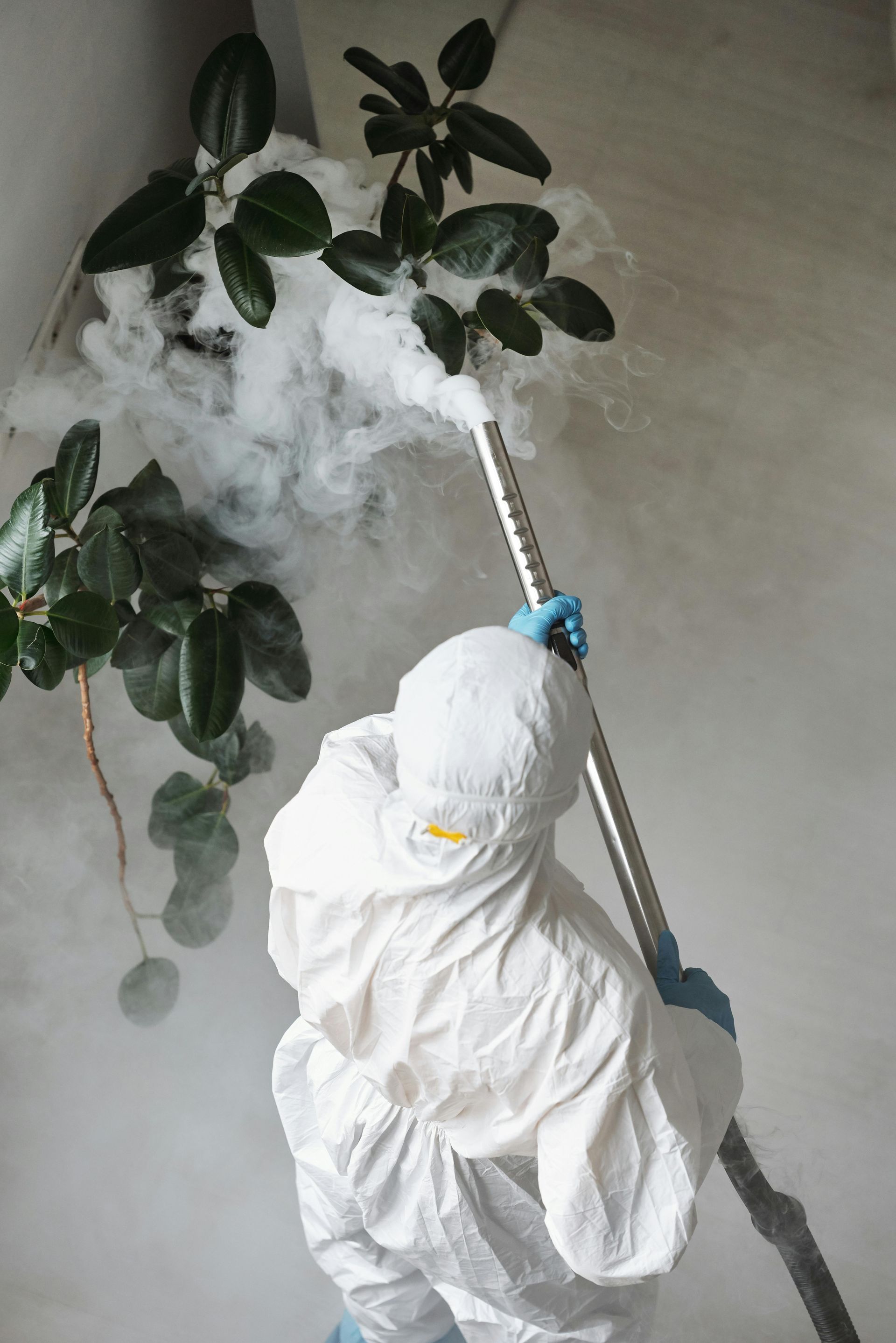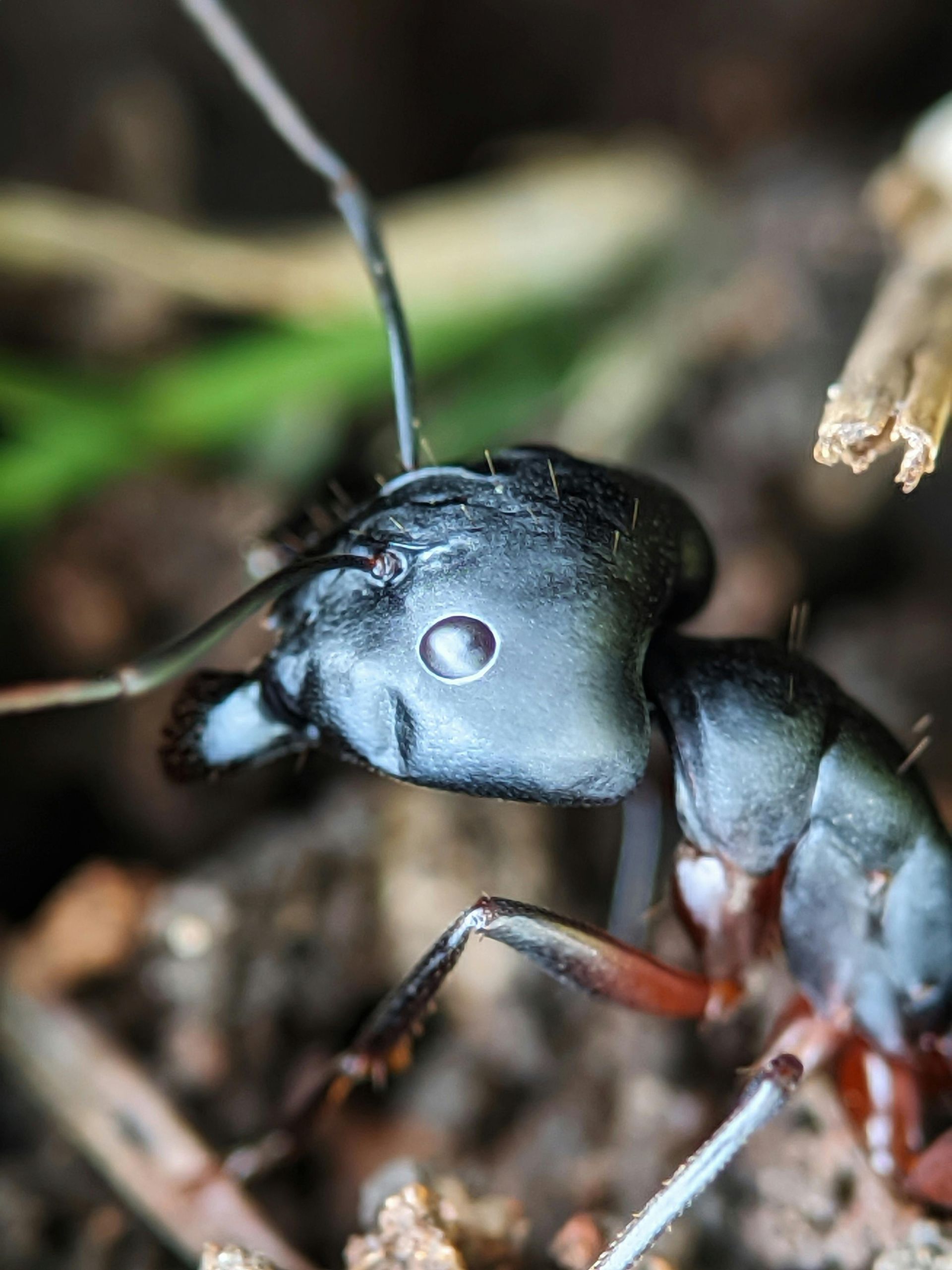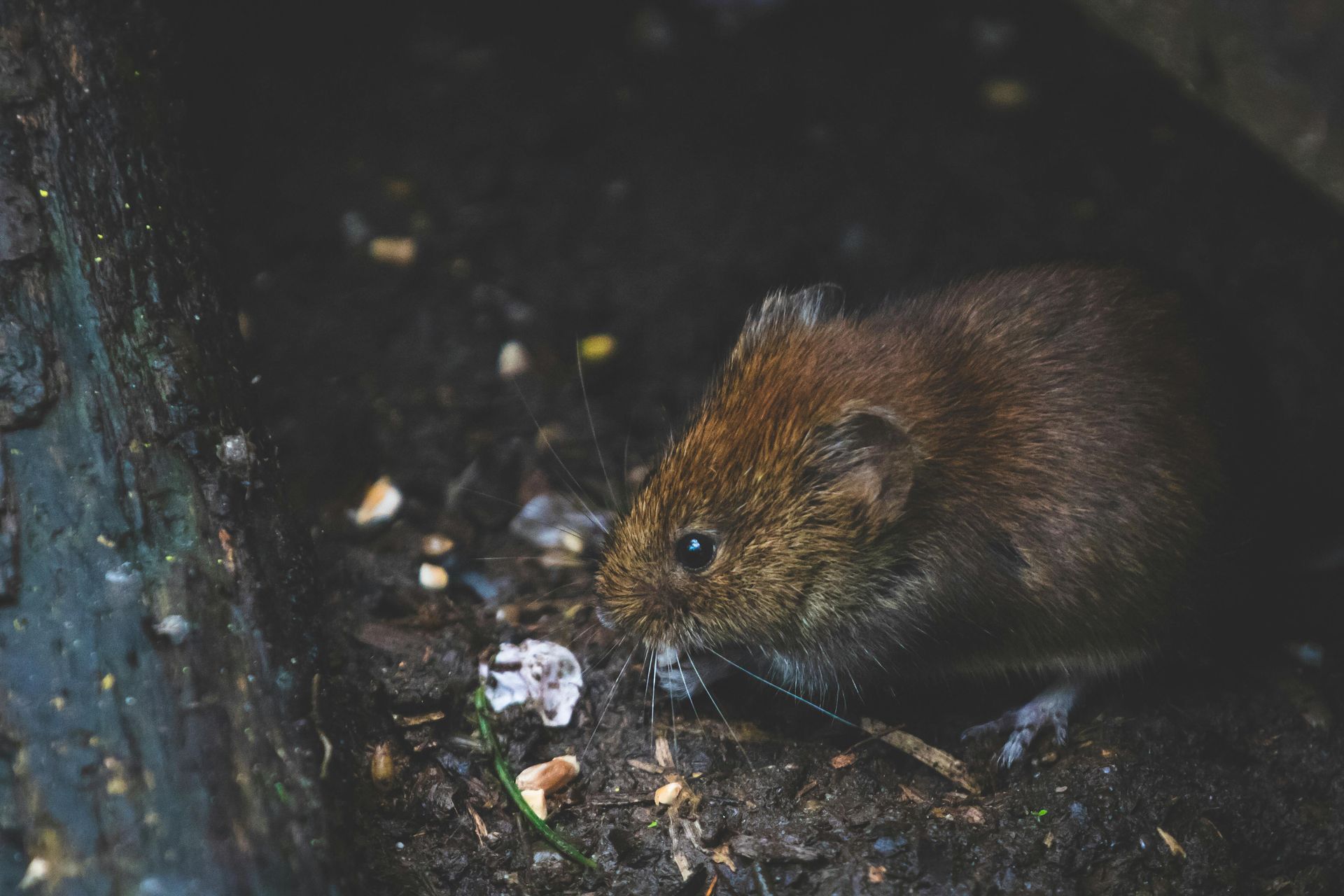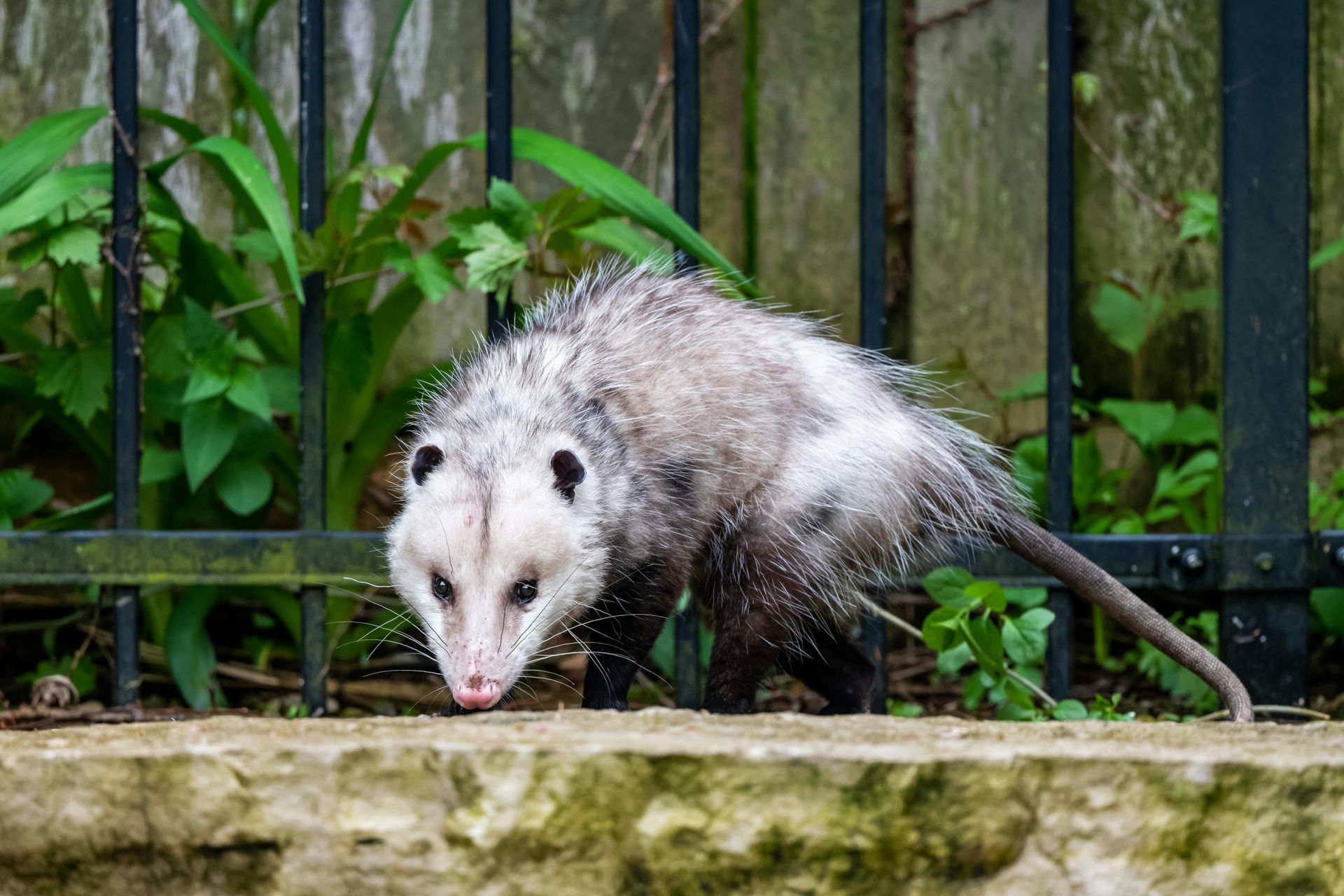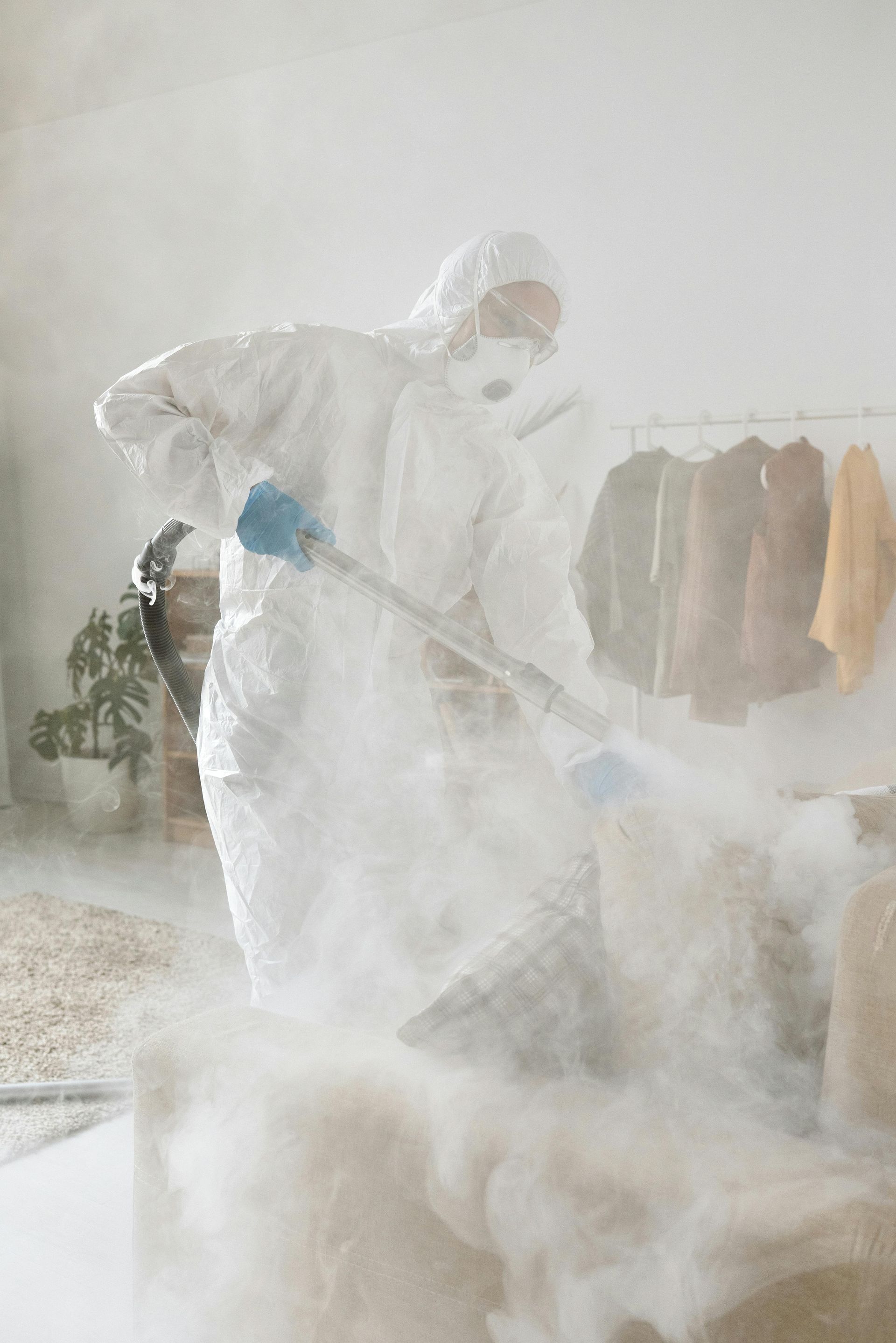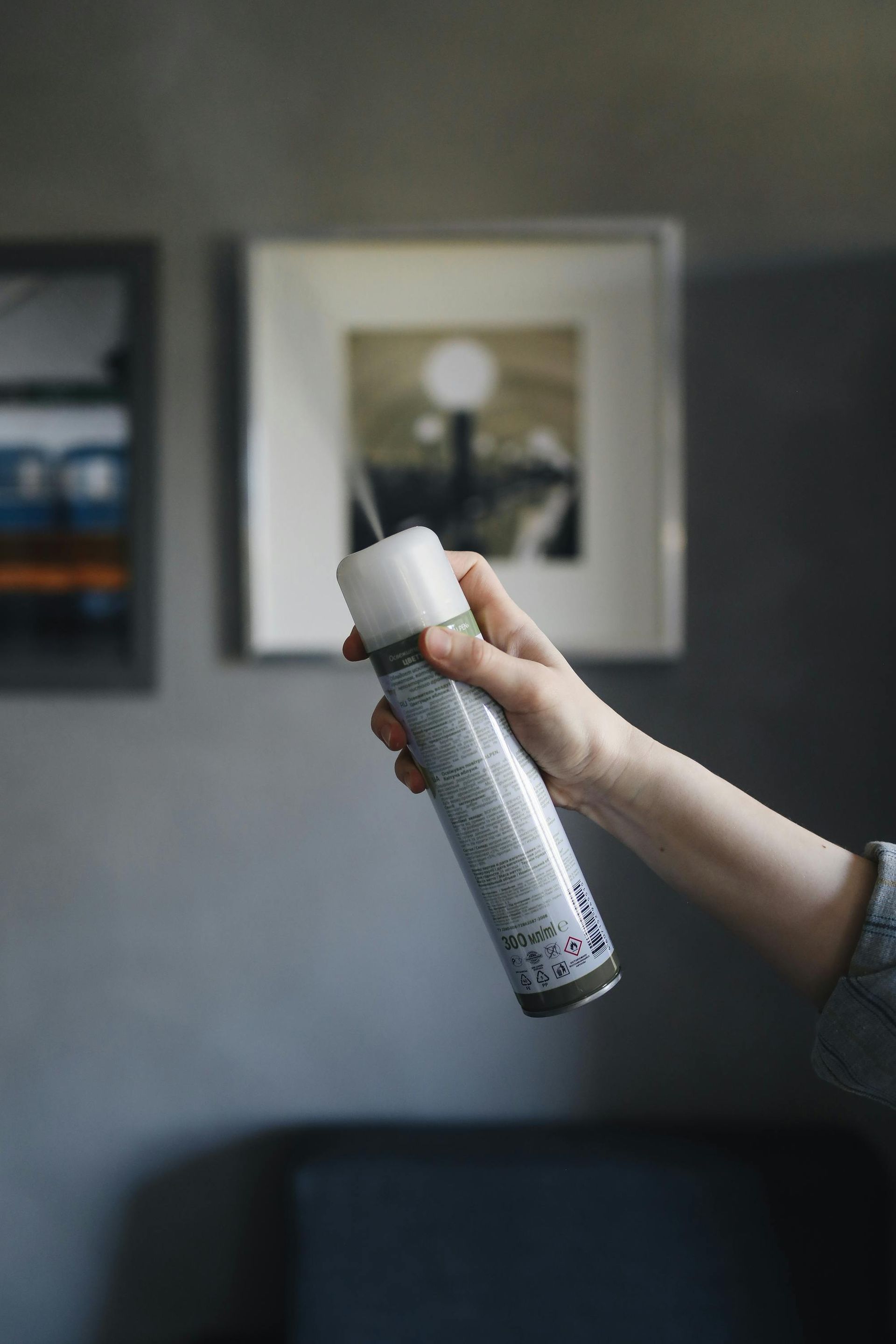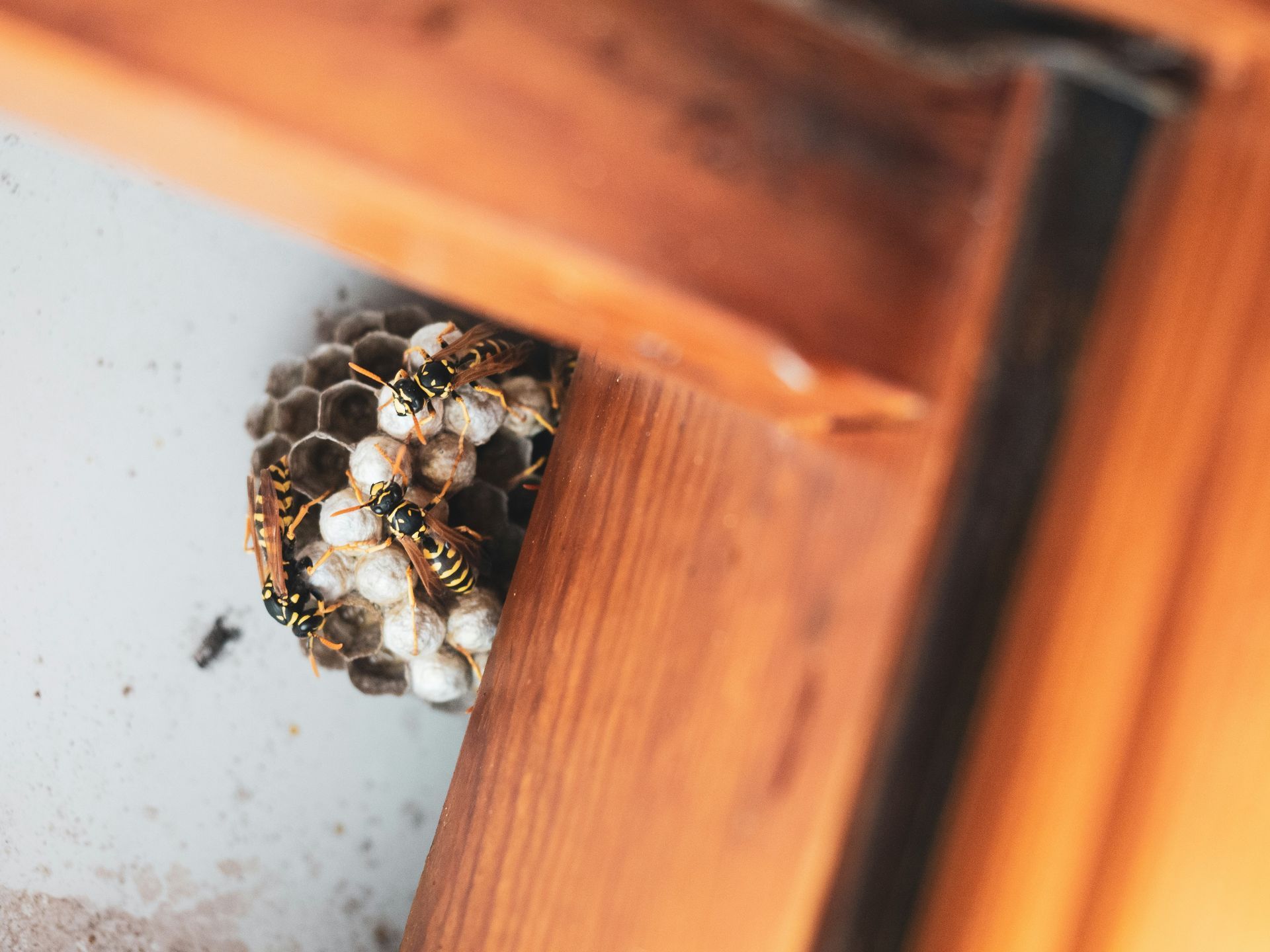Carpenter Bees vs Bumblebees: Their Differences and Why It Matters
If you're a homeowner—especially one living in New Jersey—you’ve likely noticed bees buzzing around your property in the spring and summer months.
While these winged visitors are crucial for pollination and the health of our ecosystem, it's important to distinguish between different bee species. Two common types that often get confused are carpenter bees and bumblebees.
Bee Identification: Carpenter Bees vs Bumblebees
Understanding the difference between these bees is not only a matter of bee identification but also of property protection.
Carpenter bees can cause serious structural damage to wooden elements of your home, while bumblebees, though more social, pose little risk to your property. Knowing how to identify and respond to these insects helps preserve your home and supports beneficial pollinators.
Carpenter Bees: Solitary Wood Nesters
Carpenter bees are often mistaken for bumblebees because of their similar size and yellow and black coloration. However, there are distinct differences.
The most notable characteristic of carpenter bees is their shiny black abdomen, which lacks the fuzz found on bumblebees. These bees are solitary and prefer to build their nests by boring into softwood structures like decks, siding, porches, and eaves.
Key Traits of Carpenter Bees:
- Shiny black abdomen
- Solitary behavior
- Drill holes in wood to build their nests
- Prefer untreated or unpainted wood
- Active mainly in spring and early summer
Female carpenter bees do the drilling and laying eggs inside the tunnels, while male carpenter bees patrol the entrance, often intimidating but unable to sting. Despite their ecological role as important pollinators, the damage from carpenter bees can be extensive over time if not addressed.
Carpenter Bee Damage: What to Look For
If you see round, perfectly smooth holes on your wooden structures, you're likely dealing with carpenter bee damage. Other signs include sawdust-like material (called frass) and a persistent buzzing sound coming from wood surfaces.
Common Signs of Damage from Carpenter Bees:
- Round holes in wood, about ½ inch in diameter
- Frass near hole entrances
- Woodpecker activity (they feed on carpenter bee larvae)
- Sagging beams or decks from internal damage
Do carpenter bees cause damage? Absolutely. While they don’t eat the wood, the act of boring and nesting weakens structures, leading to costly repairs over time.
Bumblebees: Gentle Garden Allies
Bumblebees are social bees with fuzzy bodies and characteristic black and yellow bands. Unlike carpenter bees, they do not drill into wood or cause any structural damage. They usually build their nests in the ground, abandoned rodent burrows, or dense grass clumps.
Key Traits of Bumblebees:
- Fuzzy black and yellow bodies
- Social insects that live in colonies
- Nest in soil or grassy areas
- Highly effective pollinators
- Less aggressive unless threatened
Bumblebee behavior centers around collecting pollen and nectar. You’ll often see them hovering near flowerbeds and gardens, contributing to the reproductive success of a wide range of plants.
Why Distinguishing These Bee Species Matters
Proper identification of bees is essential for making informed decisions about pest control and garden management. Knowing whether you're seeing bumblebees or carpenter bees helps you balance property protection with ecological responsibility.
Preventing Structural Damage
The primary reason to distinguish between these bee species is to mitigate potential damage from carpenter bees. Left unchecked, their boring habits can lead to serious structural issues. While one female carpenter bee might create a single tunnel, multiple bees over years can create extensive networks within your home’s woodwork.
Tips to Prevent Carpenter Bee Damage:
- Seal exposed wood: Use paint or varnish to make wood less appealing.
- Fill existing holes: Use wood filler or caulk to prevent bees from returning.
- Install physical barriers: Mesh or flashing can block access to vulnerable areas.
- Apply insecticide dust: Treat entry points carefully to minimize bee damage.
Supporting Bumblebee Behavior and Pollination
Bumblebees are among the most important pollinators in the United States. They collect pollen efficiently thanks to their larger bodies and behavior patterns, which include buzz pollination—a technique that dislodges pollen more effectively.
To support bumblebees:
- Plant a variety of flowering plants that bloom throughout the growing season.
- Leave some areas of your yard undisturbed to encourage bee nesting.
- Avoid pesticides that harm beneficial insects.
Identifying Bees in New Jersey
In New Jersey, the changing seasons and mix of suburban and rural areas create ideal conditions for many bee species. Both carpenter bees and bumblebees are common, but their presence requires different responses.
Carpenter Bees in New Jersey:
- Common in wooded suburbs
- Active from March through July
- Found near wooden homes, fences, and sheds
- Bumblebees in New Jersey:
- Found in gardens, meadows, and lawns
- Active through spring to fall
- Nest underground or in compost heaps
Being able to distinguish shiny black carpenter bees from fuzzy black and yellow bumblebees can save you both money and effort.
The Role of Female Bees in Nesting and Damage
The female carpenter bee plays a pivotal role in structural damage. She is responsible for drilling the tunnels and laying eggs. While male carpenter bees are more visible (and aggressive in behavior), they do not sting and do not cause the damage themselves.
Facts About Female Carpenter Bees:
- Capable of stinging (rare unless provoked)
- Drill perfectly round holes in wood
- Lay eggs deep within wood tunnels
In contrast, female bumblebees are focused on nesting and collecting pollen to feed the colony. They rarely interact with humans and are beneficial in all aspects.
Bees and Wasps: A Quick Note
It’s also helpful to understand the difference between bees and wasps. Wasps have slender bodies, little hair, and more aggressive behavior. Unlike bees, which primarily collect pollen and nectar, wasps are often predators or scavengers.
Misidentifying bees as wasps—or vice versa—can lead to unnecessary extermination of pollinators. Always consult a professional before taking action against a bee infestation.
What to Do if You Notice Bee Damage
If you suspect carpenter bees are nesting in your home, it’s best to take action quickly. While DIY solutions exist, professional pest control services provide peace of mind and long-lasting solutions.
Why Choose Monmouth Pest Control:
At Monmouth Pest Control, we pride ourselves on delivering expert pest control services that protect your home or business with reliability, transparency, and a commitment to excellence. With over 50 years of combined experience in the industry, our dedicated team—led by owner Roger A.—provides a personalized, customer-first approach that sets us apart from other exterminators.
Our team will:
- Accurately identify bee species
- Assess the extent of carpenter bee damage
- Provide safe and effective treatment plans
- Offer repair and prevention solutions to keep your home protected
Conclusion: Protect Your Home, Support Pollinators
Understanding the difference between carpenter bees and bumblebees is crucial for any New Jersey homeowner. Carpenter bees are solitary nesters that can cause structural damage if not managed, while bumblebees are gentle pollinators that support your garden's health.
By identifying these bee species and responding appropriately, you can protect your home from unnecessary damage and help sustain important pollinator populations.
If you need help with bee identification, bee damage, or pest control, Monmouth Pest Control is here for you. Let us provide expert solutions tailored to your unique needs—so your home stays safe, beautiful, and bee-smart.
